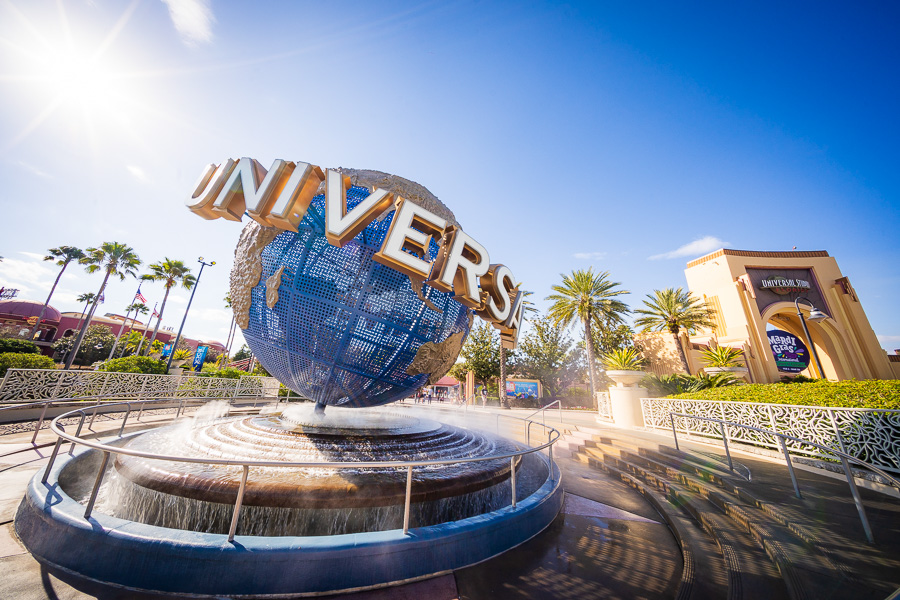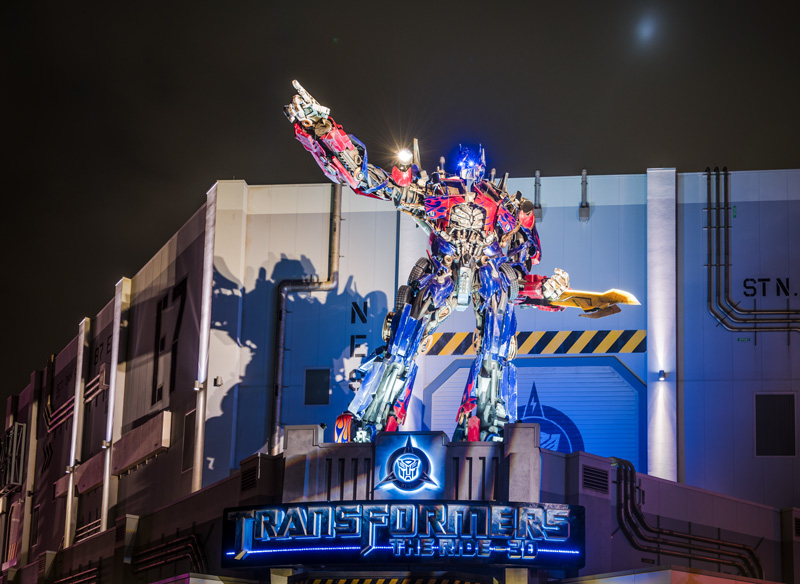
Universal Studios Florida and Islands of Adventure (and, presumably, Hollywood) theme parks have once again changed their disability access policies and requirements for the second time in just over a year. This covers the new policy along with a brief recap of what’s led to this and commentary about the possible motivations, as well as how this compares with Walt Disney World’s new approach to DAS.
Back in July 2023, Universal Orlando and Universal Studios Hollywood overhauled their Attraction Assistance Pass (AAP). They began requiring guests who requested attraction queue accommodations to apply for a special card known as the Individual Accessibility Card (IAC) prior to their visit in order to qualify for an Attraction Assistance Pass.
This was done in partnership with the International Board of Credentialing and Continuing Education Standards (IBCCES), which is an organization that provides training and certification for professionals working with autistic and neurodivergent individuals or those with other disabilities. IBCCES was controversial from the outset, or perhaps polarizing is more accurate. We heard from many readers who loved the IBCCES system, whereas others hated it. There seemed to be very little middle ground–it was typically one of the extremes. (At least, based on feedback we received.)
To receive the Individual Accessibility Card, guests with disabilities must submit a photograph and documentation from a medical provider, governmental group, or school district detailing the type of accommodations requested. Guests did not need to provide medical records, private identifying information, or other documents protected under HIPAA.
However, the process must be completed at least 48 hours before arrival at a Universal theme park. Once the prerequisites for the Individual Accessibility Card are satisfied, Team Members from Universal contact the cardholder to discuss specific accommodations and whether they’d qualify for the Attraction Assistance Pass.
Contrary to some misconceptions, receipt of IAC does not mean automatically receiving AAP. Eligibility is still determined on a case-by-case conversation. Prior to this change in July 2023, the Universal system was one of self-attestation, similar to the previous one at Walt Disney World.


Fast forward to Fall 2024, and the IAC is now an option as opposed to mandatory. Meaning that Universal guests may obtain the IBCCES Individual Accessibility Card (IAC) within 30 days of their visit to the park, but are not required to do so.
As first reported by TouringPlans, guests who do not have the IAC now can still receive an AAP. Guests whose disability prevents them from waiting for extended periods in a conventional attraction queue environment may visit Guest Services inside the parks in-person on the day of their visit and talk with a member of the Guest Accessibility Team about attraction queue accommodations and receiving the AAP.
If guests do opt to pre-register, it sounds like the process is more streamlined. Upon arrival at the park, the approved IAC cardholder will present the approved IAC to Guest Services in a dedicated IAC fulfillment location to receive their attraction queue accommodation. This should offer a time-savings as opposed to going through the same-day process in-person at Guest Services.
If this is anything like Disneyland–where lines are still long most mornings for the converted ticket booths that now serve as Accessibility Services locations–guests will be incentivized to stick with IBCCES to save themselves time. It’ll also make for more predictable planning and fewer headaches. That is, assuming Universal Team Members scrutinize the same-day requests, and they may not!
Universal has other options for accommodations, which you can read about on the Accessibility Information page on Universal Orlando’s official website.


As we noted while covering Disney’s DAS overhaul that occurred this summer, Walt Disney World and Disneyland do not use the IBCCES Individual Accessibility Card despite this becoming somewhat of an industry standard. It’s not just Universal–many other amusement and theme parks have switched to IBCCES (here’s a full list of participating parks).
However, IBCCES has not been without controversy. There has already been a lawsuit in the U.S. District Court for the Eastern District of California involving IBCCES: I.L. v. Six Flags Entertainment Corp. et al. This complaint alleges violations of the Americans with Disabilities Act and the California Disabled Persons Act, and seeks class action status.
Among other things, the lawsuit contends that using IBCCES violates the ADA’s implementing regulation, and the documentation requirement is burdensome and cannot reasonably be met by all persons with an ADA-qualifying disability. It further contends that being required to disclose sensitive personal information and provide private medical documentation in support of accommodation requests to a private, for-profit company violates the ADA.


The complaint also alleges that Six Flags’ use of IBCCES violates the ADA because of the pre-screening process for accommodation requests, which includes advance registration and documentation requirements. That prevents disabled persons from using and enjoying the amusement parks in the same manner that nondisabled persons may do so. Non-disabled guests visiting Six Flags may purchase their tickets for admission on the same-day and they may then enter the parks and enjoy all the benefits on offer spontaneously, without any advance planning or preparation.
There’s a lot more to the 57-page complaint, but those are the salient arguments. Given Universal’s change as of Fall 2024 that essentially rolls back their use of IBCCES, it strikes me as possible–if not likely–that their legal team evaluated the complaint and determined they needed to make modifications to their accessibility process or risk being named in a similar lawsuit.
This is exactly what these changes accomplish: shielding Universal from litigation. Were a substantially-similar suit filed today against Universal, the company would prevail as a result. That’s likely the key motivation in making IBCCES optional, but still strongly recommended (while also not broadcasting the changes too loudly).


This is pretty much exactly what we said when Disney rolled out its changes to DAS earlier this year.
Not wanting to be on the losing side of ADA cases, my suspicion was that Disney Legal performed litigation risk assessments on IBCCES and steered the DAS overhaul in a different direction as a result. The latest changes to DAS will almost certainly give rise to more litigation, regardless. Accessibility changes inevitably do, and it’s likely Disney’s perspective that it’s the cost of doing business.
But I’d also expect Disney to prevail in any such lawsuit, as Disney Legal is meticulous and likely had an extensive role in crafting the new DAS policy to be ADA-complaint. I also wouldn’t be surprised if the next DAS overhaul (however many years down the road that might be) does involve IBCCES, should Six Flags prevail in the aforementioned litigation. All of this is purely speculative on my part, though.


That likely explains why the changes to Disability Access Service were delayed, as well as Disney’s decision to partner with Inspire Health Alliance as opposed to IBCCES. It’s also presumably why DAS still offers options upon arrival on both coasts (a more robust day-of system in Disneyland could be due to that litigation, California laws, or Disneyland’s disproportionately local demographics–or a combination of all three).
Of course, this is not to say that Disney’s new system is perfect–or anything remotely of the sort. Only that it was likely drafted with the goal of making it litigation-proof. As is well-documented at this point, the DAS overhaul has been incredibly controversial with Walt Disney World and Disneyland fans.
There are countless sad stories of disabled guests being denied accommodations that they ostensibly need, and each week seems to bring a new such account that goes viral on social media. I won’t pretend to know what the “perfect” solution is, but I do know that the status quo is heartbreaking.
Need trip planning tips and comprehensive advice for your visit to Central Florida? Make sure to read our Universal Orlando Planning Guide for everything about Islands of Adventure and Universal Studios Florida. Also check out our Walt Disney World Vacation Planning Guide for everything about those parks, resorts, restaurants, and so much more. For regular updates, news & rumors, a heads up when discounts are released, and much more, sign up for our FREE email newsletter!
YOUR THOUGHTS
Thoughts on Universal rolling back its partnership with IBCCES to no longer require guests work with the third party? Did you love or hate the IBCCES approach? Thoughts on how this will change the attraction queue accommodations process or experience at Universal? If you’ve used the Attractions Assistance Pass at Universal, what do you think of the process for obtaining it and guest experience? Any other thoughts? Please try to stay on topic–we’ve noticed some of these comments sections get heated and personal. Discuss the policy itself, not others’ use (or lack thereof) of it. Comments that are unduly antagonistic will be deleted.












